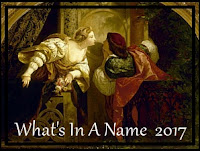With a Bunch of Spring Flowers
(from The Coming of the Princess and Other Poems: 1881)In the spring-time, out of the dew,
From my garden, sweet friend, I gather,
A garland of verses, or rather
A poem of blossoms for you.
There are pansies, purple and white,
That hold in their velvet splendour,
Sweet thoughts as fragrant and tender,
And rarer than poets can write.
The Iris her pennon unfurls,
My unspoken message to carry,
A flower-poem writ by a fairy,
And Buttercups rounder than pearls.
And Snowdrops starry and sweet,
Turn toward thee their pale pure faces
And Crocus, and Cowslips, and Daisies
The song of the spring-time repeat.
So merry and full of cheer,
With the warble of birds overflowing,
The wind through the fresh grass blowing
And the blackbirds whistle so dear.
These songs without words are true,
All sung in the April weather—
Music and blossoms together—
I gather and weave them for you.
Kate Seymour MacLean (1829-1916)
Canadian poet and teacher






